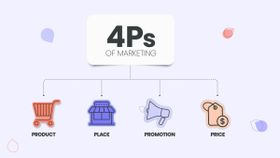Why do small businesses struggle with digital marketing?
Without the right approach, digital marketing can feel overwhelming for small businesses. Find out the biggest challenges and how to overcome them.
Published January 31, 2025.

For small businesses, digital marketing is essential for attracting customers, building brand awareness, and driving sales. Unlike traditional marketing, which often requires large budgets, digital marketing offers flexible, scalable options that allow businesses to start small and expand over time. With the right strategy, even businesses with limited resources can compete effectively and reach their target audience.
A well-executed digital marketing strategy helps businesses appear in search results, engage with customers on social media, and generate leads through content and email marketing. As our expert Barri Coen explains, focusing on the right channels and planning carefully ensures that marketing budgets are used efficiently, maximizing impact without unnecessary spending.
Why digital marketing can feel overwhelming
Many small business owners find digital marketing difficult due to the wide range of platforms, strategies, and tools available. The assumption that success should be immediate or inexpensive leads to frustration when results take time. Our expert, Barri Coen, notes that businesses often expect quick returns from SEO and content marketing when, in reality, these efforts require consistency and patience.
Additionally, a lack of clear planning and tracking makes it hard to measure success. Without proper analytics in place, businesses may struggle to determine what is working and what needs adjustment. This uncertainty often leads to wasted budgets and marketing efforts spread too thinly across too many activities.
Common challenges Small Businesses face
Small businesses often face a range of digital marketing challenges that can make it difficult to thrive in a competitive landscape. Limited resources, lack of expertise, time constraints, and ineffective strategy and measurement are all factors that hinder success. Let's explore these common challenges and highlight how small businesses can navigate them effectively.
Limited budgets and resources
One of the primary challenges small businesses face in digital marketing is competing with larger companies' marketing budgets. Coen explains that many small businesses "find it hard to get noticed or achieve similar results with much smaller budgets." This limitation forces small businesses to be strategic about where they allocate their resources.
Coen also notes that “digital marketing can be done very cost-effectively and is scalable so it can start small and grow as the business does,” offering hope for small businesses to compete effectively by focusing their efforts on high-impact channels.
Another major constraint is the lack of in-house expertise or agency support. With smaller budgets, many businesses cannot afford to hire dedicated marketing professionals. As Coen mentions, “many small businesses face constraints in hiring in-house experts or agencies.” This often results in business owners handling their marketing efforts themselves, which can lead to inefficient or poorly executed strategies that fail to drive the desired results.
Lack of knowledge or expertise
Small business owners often feel overwhelmed by the wide array of marketing tools and platforms available to them. As Coen explains, many small businesses are “overwhelmed by tools, platforms, and strategies,” making it difficult for them to choose the best approach for their needs.
The rapid pace of change in digital marketing means that staying updated with trends and best practices can be a full-time job. Coen shares that small business owners frequently struggle with “staying updated with trends and best practices,” leaving them behind the curve when it comes to using the most effective strategies.
Without deep expertise in these areas, small business owners risk making decisions that don’t align with their goals or yield the best results. This lack of expertise can prevent businesses from effectively leveraging powerful tools and strategies, ultimately limiting their marketing potential.
Time constraints
Balancing the demands of running a business with the need to focus on marketing is another significant challenge. Coen notes that marketing is often “treated as an afterthought” by small business owners who are consumed with other business operations. This lack of focus on marketing means that efforts are often sporadic, and long-term strategies take a backseat to more immediate priorities.
Additionally, small business owners often have to wear multiple hats. As Coen points out, they are “juggling multiple responsibilities, from managing operations to overseeing sales and customer service.” With so many tasks to handle, setting aside time for a structured and consistent marketing plan can be difficult. Without a clear focus on marketing, it’s easy for these efforts to fall short of expectations.
Poor measurement and strategy
Small businesses often struggle with tracking the effectiveness of their marketing campaigns. Coen emphasizes that a common mistake is “focusing on short-term wins over long-term strategy,” which can lead to a lack of sustainable growth. By not committing to a long-term vision, small businesses may miss the opportunity to build meaningful relationships with customers or develop a strong brand presence.
In addition to strategy issues, small businesses often face challenges with measuring their return on investment (ROI). As Coen mentions, many small businesses “don’t have the infrastructure in place to be able to track and measure the effectiveness of marketing,” which can lead to uncertainty about which campaigns are driving results. Without a structured approach to measurement, small businesses risk wasting time and resources on marketing efforts that don’t yield positive outcomes.
Misconceptions about digital marketing
Digital marketing presents small businesses with valuable opportunities to grow, but common misconceptions often lead to ineffective strategies, wasted budgets, and missed opportunities. Understanding these misconceptions can help small businesses set realistic expectations and make informed decisions about their marketing efforts.
Believing success is instant or cheap
One of the most prevalent misconceptions is that digital marketing delivers immediate results with little investment. While certain strategies, like paid search, can generate quick wins, others—such as SEO and content marketing—take time to yield meaningful results. Coen emphasizes this point:
Results aren't always immediate. From some channels it can be, but for many, particularly SEO and content marketing, it can take time to bear fruit.
Small businesses often expect to see a return on investment within weeks, but digital marketing success is built on consistency and long-term effort. Additionally, the assumption that digital marketing is always expensive is misleading. Coen explains that while it can be costly if businesses focus on the wrong channels, it is also scalable:
Digital marketing can be done very cost-effectively and is scalable, so it can start small and grow as the business does.
Misunderstanding the platforms
Many small business owners assume that simply being online is enough to attract customers. However, each platform serves a different purpose and requires a tailored approach. Posting sporadically on social media or launching a website without optimization does not guarantee visibility or engagement. Coen notes that one of the most common mistakes small businesses make is:
Not having a clear plan and trying too many things at once. It’s important to have focus, which means having clear goals as well as realistic expectations.
To see success, businesses must understand how to use each platform effectively. For example:
SEO is a long-term strategy requiring consistent content and optimization.
Paid search offers immediate traffic but must be managed strategically to avoid overspending.
Social media requires engagement, not just occasional posts.
Email marketing is most effective when personalized and automated.
Underestimating the need for consistent effort
Another common misconception is that digital marketing is a one-time effort. Many small businesses launch a campaign, see minimal results, and assume the strategy has failed. However, digital marketing requires ongoing optimization, audience engagement, and performance tracking. Without consistency, even well-executed strategies will lose momentum. Coen stresses the importance of having the right infrastructure in place:
Not getting the infrastructure in place to be able to track and measure the effectiveness of marketing. It’s very common for small businesses to have not set up analytics or reporting, so often they aren’t sure what is and isn’t working.
To build sustainable success, small businesses must:
Monitor analytics and adjust strategies based on performance data.
Consistently produce and refine content to maintain engagement.
Test and optimize marketing funnels to improve conversion rates.
The reality: digital marketing requires strategy and patience
Misconceptions about digital marketing can lead to frustration and wasted resources. Small businesses should approach digital marketing with realistic expectations, a strategic plan, and a commitment to ongoing efforts. As Coen advises:
Be prepared to be consistent with your marketing. It’s almost impossible to really make any given channel work in just a month, particularly when budgets are low, so be prepared to stick with it.
By understanding these misconceptions, small businesses can avoid common pitfalls and make informed decisions that lead to sustainable growth.
The role of competition
Navigating saturated markets with limited visibility
Small businesses often struggle to stand out in crowded markets, especially when they lack larger competitors' brand recognition and budgets. Marketing efforts can become fragmented without a well-defined strategy, leading to low visibility and minimal returns. As Coen explains,
It’s important to have focus which means having clear goals as well as realistic expectations. Spreading resources too thinly is a common mistake that tends to result in nothing really working.
To compete effectively, small businesses must refine their positioning. A clear value proposition and a niche focus can help differentiate them from larger competitors. Additionally, targeted content marketing, local SEO, and community engagement can create visibility without requiring excessive spending.
How larger competitors overshadow small businesses in paid media and SEO
Big brands dominate paid media and SEO with larger budgets, allowing them to outbid smaller businesses for high-value keywords and flood search results with authoritative content. This often makes it difficult for small businesses to achieve visibility, particularly in competitive industries.
However, smaller companies can succeed by being strategic with their spending.
Start with a clear plan,” Coen advises. “Be clear about what you want to achieve and how much you’re willing to pay for it.
Instead of competing directly for broad, high-cost keywords, small businesses can focus on long-tail keywords, local SEO, and industry-specific content that attracts more relevant audiences at a lower cost.
Another effective approach is improving conversion rates rather than solely chasing traffic. “Try to dedicate at least 40% of time and energy towards improving the funnel,” Coen suggests. A well-optimized website, strong calls to action, and personalized customer journeys can help maximize results from limited traffic.
By focusing on niche audiences, refining messaging, and optimizing their marketing funnels, small businesses can carve out their space in competitive markets—even against much larger players.
Solutions to overcome digital marketing struggles
Small businesses often face challenges in digital marketing due to limited budgets, lack of expertise, and competition from larger brands. However, with a strategic approach, they can maximize their impact and achieve sustainable growth.
Small businesses can build a marketing strategy that delivers results by investing in the right channels, developing a long-term plan, and tracking performance.
Investing strategically
Spreading budgets too thinly across multiple platforms often leads to poor returns. Instead, small businesses should focus on high-impact channels that align with their goals and audience. As Barri Coen explains,
Focus on the channels that are most likely to deliver results both in the short term and longer term, being flexible to change priorities over time.
Example: SEO is a cost-effective long-term strategy, while paid search can generate immediate leads.
Outsourcing to a digital marketing agency for small businesses in the UK can also be a smart investment. Agencies offer expertise that small businesses may not have in-house, helping them avoid common pitfalls and optimize their budget. Rather than wasting resources on ineffective strategies, businesses can benefit from professional guidance on SEO, paid ads, and content marketing.
Building a long-term plan
A lack of clear goals and audience insights can lead to ineffective marketing. Small businesses must define their objectives, whether increasing sales, generating leads, or building brand awareness.
Be clear about what you want to achieve and how much you’re willing to pay for it.
This approach ensures that marketing efforts are focused and measurable.
Content marketing, SEO, and customer engagement should be central to any strategy. High-quality content improves search rankings, attracts organic traffic, and positions a business as an industry authority. Engaging with customers through email marketing, social media, and personalized messaging helps build trust and encourages repeat business.
Measuring success
Tracking performance is essential for refining marketing efforts. Many small businesses fail to set up analytics, leaving them unsure of what’s working.
Barri Coen
Setting up tools like Google Analytics, social media insights, and conversion tracking allows businesses to measure results effectively.
Marketing strategies should evolve based on data. By analyzing key metrics—such as website traffic, conversion rates, and customer engagement—small businesses can adjust their campaigns for better results. Rather than guessing what works, they can make informed decisions that drive growth.
Why consider a digital marketing agency
Managing digital marketing in-house can be challenging for small businesses, especially with limited time, budget, and expertise. Many struggle with choosing the right strategies, tracking performance, and competing with larger brands. Working with a digital marketing agency for small businesses in the UK can help businesses overcome these challenges by providing expert guidance, cost-effective solutions, and measurable results.
Benefits of expertise and experience
Digital marketing agencies bring specialized knowledge that small businesses may not have in-house. From SEO and paid advertising to social media and content marketing, agencies understand how to optimize campaigns for maximum impact. Coen explains that many small businesses fail to plan properly or spread their resources too thinly, reducing effectiveness. An agency ensures that marketing efforts are focused and aligned with business goals.
Agencies also stay updated on the latest trends, algorithm changes, and best practices. This allows small businesses to benefit from strategies that drive engagement, increase visibility, and improve conversion rates—without needing to navigate the complexities of digital marketing alone.
Cost-effectiveness compared to in-house efforts
Hiring an in-house marketing team can be expensive, especially for small businesses that need a range of skills, from copywriting to SEO. A digital marketing agency offers access to a full team of experts at a fraction of the cost of hiring multiple employees.
Additionally, agencies help businesses avoid costly mistakes. Poorly managed ad campaigns, ineffective SEO strategies, or unoptimized websites can waste valuable budgets. By outsourcing to professionals, small businesses can ensure that their marketing spend delivers the best possible return on investment.
Take Your Digital Marketing to the Next Level with Mayple
Struggling to navigate the complexities of digital marketing? Mayple connects small businesses with top-tier email marketing experts and specialized agencies, ensuring you get the right strategy without the guesswork. Whether you need to refine your email campaigns, improve engagement, or drive more conversions, Mayple provides vetted professionals who deliver results.
Partnering with a digital marketing agency for small businesses in the UK has never been easier. Mayple’s data-driven platform matches you with experts who understand your industry, audience, and budget—helping you achieve sustainable growth without wasting resources. Start your journey toward smarter, more effective marketing today.






